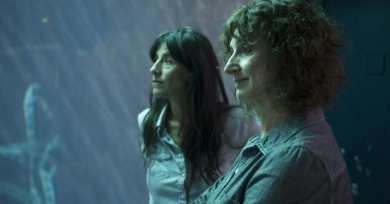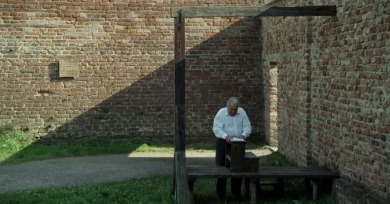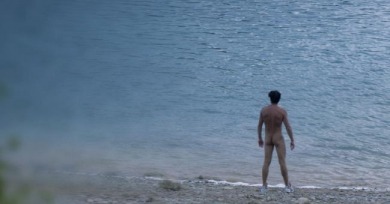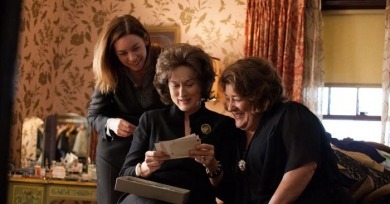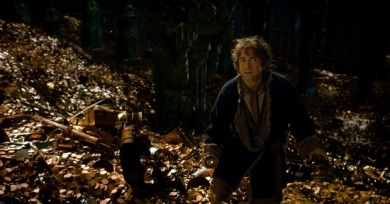Reviews
Arnaud Desplechin’s Jimmy P is a curious case: a scrupulously faithful adaptation that toes a narrow, wobbly line between honoring and subverting traditional therapy’s reliance on the spoken word.
It’s a fine irony that a movie so determined to satirically skewer groupthink has generated so much of it.
At once sinuous and almost mournfully droll, Vic + Flo Saw a Bear itself feels a bit like an obstacle course, setting up a number of genre elements (ex-con romance, end-of-the-line resignation, cat-and-mouse games, etc.) only to bob and weave around them.
Claude Lanzmann, the most intractable and demanding of modern filmmakers, has spent his career hammering out two iron-clad, seemingly unresolvable principles: a) memory, in any really meaningful sense of the word, is close to impossible, and b) memory is completely, indisputably necessary.
There is no narrative arc to the 3D-shot Charlie Victor Romeo; there are just different planes, different reasons for the crashes, all left opaque to the viewer until the arrival of a series of clinical slides announcing casualties and causes after abrupt cuts to black signifying the plane has gone down.
Certain elements of Visitors suggest that Reggio has grown closer in spirit since Koyaanisqatsi to the wide-eyed young stoners who helped catalyze that film’s success.
The political weight of representation inevitably bears down on the viewer of Alain Guiraudie’s Stranger by the Lake, an explicit film about amorphous desire that unapologetically combines menace and eroticism, and daringly—and most alienatingly for those who want to be told what to think at the movies—it has no agenda at all.
It’s possible to detect more than a few hints of detachment or even derision in the way that Gloria treats its protagonist, but Garcia’s performance stands up against these moments in the screenplay in a way that creates genuine friction—the fraught quality that generally makes for worthwhile filmmaking.
Without the dynamism of the staging, Letts’s play comes across as merely depressing, even taking into account the excitement with which Streep draws out her syllables. It’s a film in which family is malignant and the only pure loving couple is, ironically, an incestuous one.
Like Father, Like Son has the unfortunate effect of making Kore-eda’s greatest attribute as a filmmaker—his sensitivity—into a liability.
Peter Jackson has directed five J. R. R. Tolkien films so far this century. In the end, the movies in that universe will span two trilogies and nearly a full day’s run time.
Walter Mitty may be a film that features a character who’s basically a retargeting ad that speaks in sponsored tweets, but it’s beautiful in a way that neither mainstream nor independent films aspire to anymore.
The Past, the latest film by Iranian writer-director Asghar Farhadi, has been frequently likened—politely, if not always enthusiastically—to his previous effort, the 2011 near-consensus masterstroke A Separation.
With Her, his fourth feature, Spike Jonze has made a movie so unambiguously, pointedly about The Way We Live Now that we might wonder if it could speak to any moment other than Now.


